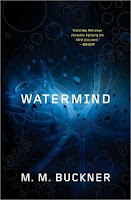Published by Random House
ISBN 10: 1400068932
ISBN 13: 978-1400068937
March 2010
386 Pages
This delightful book is about an older, widowed man who realizes what really matters when he is confronted by both proposed development changes in the small town of Edgecombe St. Mary, and the overt prejudices of his friends, family and neighbors.
Major Ernest Pettigrew lives a quiet life at Rose Lodge, his family’s ancestral home. He is thoroughly British, valuing the traditional things; honor, duty, good manners, and restraint. His only brother’s death causes him to reevaluate his life, and he finds it wanting. He realizes how lonely he’s felt since the death of his wife six years ago, and how little he has seen of his only son, Roger.
He befriends Mrs. Ali, a widowed, independent shopkeeper of Pakistani descent, when she helps him through the shock of his brother’s death. After her kindness, he finds reasons to go to her little store to buy tea and sundry items almost daily. They discover they have a shared love of literature and arrange readings and then outings together. Their friendship grows slowly, with the two quite aware of their very different lives. However, by this time he is quite smitten with the lovely and intelligent Jasmina Ali, and begins to court her. As their friendship deepens, she shares with him her fear of giving up her shop, returning to her family and taking on a more traditional role; a move her morose nephew Abdul Wahid encourages for his own reasons; two of which are an antagonistic single mom with a small boy that looks just like him.
Roger arrives with a stylish blond American girlfriend, and they make plans to purchase and renovate a cottage close to his father, but need money to do so. Roger encourages his father to sell a very valuable matched pair of rifles his grandfather had left Ernest and Bertie, but Pettigrew resists because he promised never to sell them. However, Marjorie, Bertie’s widow, is also pressuring him to sell the rifles as she needs money as well. Roger is entirely self absorbed and is only interested in furthering his career any way he can, even if that means marrying a woman he doesn’t care about.
The local village ladies have made plans for the annual Golf Club dance, the theme of which is 'An Evening at the Mughal Court,’ and have roped Pettigrew into being on the committee and Mrs. Ali into helping also. They both, especially Mrs. Ali, work very hard to make this a success. Pettigrew asks Mrs. Ali to the dance and they attend together. The evening begins beautifully, but then devolves into a nightmare. Mrs. Ali is subtly and then more blatantly insulted several times until she rushes home without Pettigrew; then decides to return to her Pakistani family.
Pettigrew is distraught, feeling he has lost Mrs. Ali forever and cannot imagine his life without her. He throws restraint to the wind and goes to rescue her from a dismal life with her hidebound relatives. They escape together, and later, in a climatic scene, Pettigrew faces death, and loses one of the precious guns, in order to save the life of her surly, conflicted nephew.
Major Pettigrew's Last Stand looks closely at the expectations and friction not only between generations, but also between cultures, and delves deeply into the notion of the good of progress (good for whom?) and the idea of home. A totally absorbing read, you’ll cheer when Pettigrew goes to rescue his lady love. This thoughtful, charming, and delightful book is Ms. Simonson’s debut novel, and this author can hardly wait for her next book.


